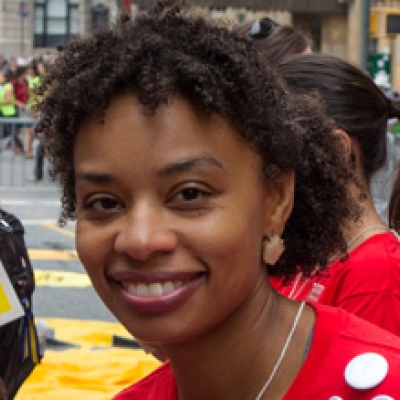A changing climate means a changing society. The Island Press Urban Resilience Project, supported by the Kresge Foundation and the JPB Foundation, is committed to a greener, fairer future for all. This post was originally published on Grist.com.
It’s no secret that the climate movement, despite some recent successes, has its problems. Spoken by mostly white voices, our messages are sometimes out of touch with the priorities of frontline communities: the ethnic minorities and low-income people who unfairly absorb the health and economic costs of climate change and environmental pollution. We are becoming more diverse, but we’re not there yet. And we focus most of our attention on the corporations and politicians that we perceive to have all the power, rather than building power from the ground up, in the communities that are right now dealing with the consequences of climate change and fossil fuel extraction.

Here’s good news, though: Last week, all of those problems dissolved (at least for a couple of days) at a breakthrough meeting in Atlanta. The occasion was a convening of advocates associated with the Advancing Equity and Opportunity Collaborative and the U.S. Climate Action Network’s Southeast Climate and Energy Network. The convening drew 30 activists and policy advocates working on climate change and equity — including many from frontline communities in the South.
Why Atlanta? Everyone knows the Southeastern U.S. has a long history of racism, voter suppression, and poverty. But this region also has a history of hospitality, resistance, solidarity, and victory for civil rights. And the South has good reason to push for a shift to a cleaner economy. Many of its communities bear a heavy burden of impacts from dirty energy industries — from toxic-laden Uniontown, Ala., to the blasted-off mountaintops of Appalachian coal country to the oil-fouled waters of the Gulf of Mexico. And — as hurricanes Katrina, Rita, and others have made clear — the region’s low-lying coastal areas are profoundly vulnerable to climate-related disaster.
The Advancing Equity and Opportunity Collaborative and the Southeast Climate and Energy Network are working to make sure that this region is not a sacrifice zone, but rather a source of leadership and inspiration for the climate change movement. The challenge is to lead the climate movement in ways we have not been led before — with cultural competence and environmental justice as key directives as opposed to electives.
So far, so good: After a year of organizing separately, these two groups came together and, within 48 hours, came up with three key areas in which to advance equity and opportunity while addressing climate change:
- Re-democratize rural electric cooperatives: Millions of Southerners get their power from rural electric cooperatives, but many of those co-ops have drifted from their New Deal, “power-to-the people” origins. Ratepayer organizing can re-democratize electric co-ops, and push them to support money-saving energy-efficiency upgrades and renewable energy options for their customers.
- Support the Clean Power Plan: The EPA’s Clean Power Plan will work with states to dramatically cut carbon emissions from power plants. The most polluting plants are located in the Southeast, and the most impacted people are (you guessed it!) in low-income communities and communities of color. Now is the time to organize and make sure that those impacted communities realize the benefits (jobs, for example) of carbon-reduction efforts.
- Foster resistance and recovery: Activists in the South must fight back against the fossil fuel extraction that takes such a heavy toll on citizens, and simultaneously help communities rebuild after they’re hit by climate-related disasters. But each of these challenges present great opportunities as well: the chance to create a new energy system that is both sustainable and equitable, and to build power at the community level as citizens work toward this just transition.
Most importantly, in just two days, we created a sense of fellowship and trust around the vital importance of keeping equity at the forefront of our work. Inequality and climate change must be fought hand in hand. Equity is not just a destination for our work; it’s a journey — a way of working together that must permeate all parts of the movement.
And this is just the beginning. On Aug. 29, 2015, the Advancing Equity and Opportunity Collaborative and the Southeast Climate and Energy Network will join with Gulf South Rising to commemorate the 10th anniversary of Hurricane Katrina in New Orleans — a place where the impacts of inequality and climate change are still on full display. (Get more information here.)
We ask you to join the movement in New Orleans and make the most of this opportunity to converge, to organize, to lift up our voices together in solidarity. Just as we proclaimed for the first People’s Climate March in New York last September, “To change everything, we need everyone.” So, buy your train ticket, plan your carpool — do what you need to do to stand with us and make history. Stay tuned.




